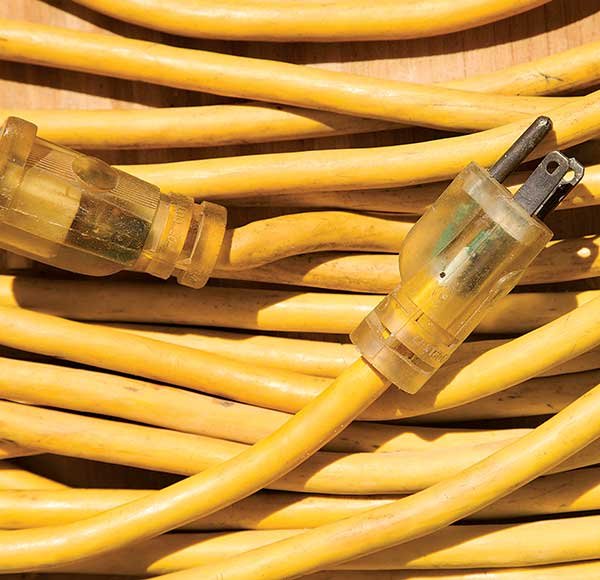
SAFETY TIP: BEWARE OF THE Extension-Cord Danger
As you work on your supplies for the next boating season, pay some attention to the oft ignored, but always needed Extension Cord.
You might scoff at the notion of an instruction manual for an extension cord. There aren't a lot of moving parts, and most people usually don't get injured from using one. But around the water, there are some important safeguards that, if not followed, can cause a fire or even electrocution. Here's what you need to know:
- Don't use a cord outside if it's marked "For indoor use only."
- Inspect your extension cords regularly, and don't use one if it's damaged.
- Don't overload a cord. Determine the total number of watts the cord will be subject to (watts can be found listed on the equipment being used). A cord will specify its maximum watt load on a label. If you exceed that, the cord can melt or catch fire.
- Turn off the load before plugging in or unplugging the cord; otherwise, the prongs can be damaged over time and overheat.
- Don't remove the grounding prong. If the outlet can't accept three prongs, it's not grounded and could be dangerous to use, especially outside or near water.
- Avoid multiple extension cords. Never plug a two-prong cord into a three-prong cord; it will defeat the ground.
- Don't get the cord wet or allow it to dangle in water. If you're working around water, use a cord with a built-in ground fault circuit interrupter, or GFCI.
- If the extension cord gets hot, stop using it immediately. It's either overloaded or damaged.
- Don't coil or cover a cord while in use. It can overheat under heavy loads.